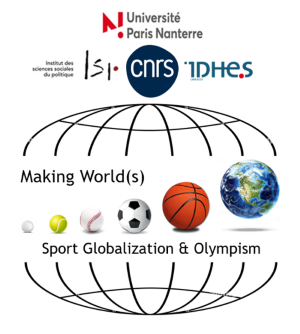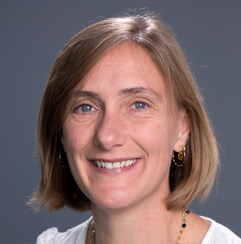Guest speakersThree guest lecturers will be featured during the conference (the order shown here is the order of the lectures in the conference program): Dominique Connan, Full Professor, Laboratoire Institut des sciences sociales du politique (ISP, UMR 7220), Université Paris Nanterre dominique.connan@parisnanterre.fr _ _ _ _ Main research topics: colonial legacy, formation of ruling classes, economic elites, globalization of sports Personal or corporate/institutional web page, CV: https://www.u-picardie.fr/curapp/wp-content/uploads/2015/09/CV_CONNAN2017.pdf _____________________________________ Tuesday, June 04, 2024: ___________________________________________________________ Conference title: An "imagined global bourgeoisie": golf and the thwarted respectability of Kenyan elites, from independence to the presidency of Mwai Kibaki
Conference abstract: "Everything to do with horses, for one reason or another, is linked to the great life of the past. It tends to look back, rather than forward. It's always a sport that has, perhaps, a lot to do with the past, rather than the future. Whereas something like golf, I mean, it's all about the future!" In this respect, the formation of leading social groups is the result of two phenomena: the accumulation of capital, of course, but also a more complex symbolic formation, aimed at affirming the value of their position, or rather the dominant value of their lifestyle. This is what the study of golf and its appropriation in Africa reveals. Five key words: Kenya, golf, legs colonial, élites, Mwai Kibaki Main publications: 2024 (sous presse), La décolonisation des clubs kényans. Legs colonial, sociabilité et formation d’une élite africaine, CNRS Éditions, collection Logiques du Désordre 2024 (sous presse), « Le golf club » in Bussi M., Drozdt M. et Argounès F. (dir.), Lieux Communs,Fayard 2017 - (avec C. Josse-Durand) “Le Pays du miel et du lait. Ethnographie de la campagne électorale d’un professional au Kenya”, Cahiers d’Etudes Africaines, n°225, 2017/1 2016 -“Une réinvention de la différence élitaire. Un Rotary Club dans le Kenya de Mwai Kibaki”, Critique internationale, n°73, octobre-décembre 2016, pp.133-155 2015 − “Sociabilité et sphère publique coloniale. Les clubs européens dans le Kenya rural” in Bertrand Romain, Emmanuelle Sibeud et al. (dir.), Cultures d’Empires. Circulations, échanges et affrontements culturels en situations coloniales et impériales, CERI-Karthala, Paris, 2015, pp.225-246 2014 -“La Destinée manifeste de l’entrepreneuriat Kényan. Charité et constitution morale d’une élite économique africaine”, Politix, Vol.27, n°108/2014, pp.123-141 ________________________________________________________________________________________________________
Modern and Medieval German Studies at Department of German and Dutch, University of Cambridge _ _ _ _ _________________________________________ Wednesday 05 June 2024: _______________________________________________________ Conference title: Rethinking Jesse Owens: Berlin 1936 and the German Media Landscape
The master narrative of the 1936 Olympics has two dominant strands: first, that the Games were a propaganda triumph for the regime and based on deception; and second, that Jesse Owens defied the regime but that his portrayal in the press and in Leni Riefenstahl’s Olympia film was also based on deception. Though invariably linked in every interpretation of the Games, these strands, on closer inspection, are contradictory. This paper seeks to address this contradiction by looking first at the handling of Owens in the German media (press, newsreel, film). It will look at the nature of the restrictions on press freedom after 1933, as they relate to sport, showing the latitude that journalists enjoyed as well as the constraints they faced. More importantly for the theme of the conference, it will map out the development of sports media in the 1920s and 1930s and explore the global dynamic that sustained and propelled it forward. The global force of sport as a media topic continued unabated in the early National Socialist era and is key to understanding the way Owens was received in Germany. The paper will show that far the Owens story is only partly explained by the blow he deal to the Nazis’ racial politics. While this can hardly be denied, it is more than balanced by the overwhelmingly enthusiastic welcome Owens was given by the German public, not least as a result of the media build-up to the Games. In short: Owens was more of a hit with the German public than he was a shock to the regime. Understanding this dynamic, fuelled and sustained by the media and its global remit, poses new questions about the propaganda triumph of the 1936 Olympics. The paper will conclude, therefore, with some thoughts towards a general reappraisal of the most infamous Games in history. Five keywords: Jesse Owens, Sports Media, Olympics, National Socialism, Propaganda
The 1972 Munich Olympics and the Making of Modern Germany (with Kay Schiller), University of California Press: Berkeley 2010.
The Whole World was Watching: Sport in the Cold War (ed. with Robert Edelman), Stanford University Press: Stanford, CA, 2020.
Literary Beginnings in the European Middle Ages, ed. with Mark Chinca, Cambridge University Press, 2022.
Weimar in the World: Communication after the First World War, special issue of German History (Oxford University Press), ed. with Malte Zierenberg, 2024.
Willy Meisl – King of the Sports Journalists: A Jewish Career in Times of Change, 1918-1945, with Darren O’Byrne, de Gruyter: Berlin, forthcoming 2024. ______________________________________________________________________________
Florence Carpentier, Assistant Professor, CETAPS, UFR STAPS, Université de Rouen florence.carpentier@univ-rouen.fr Personal or institutional web page, CV: https://cetaps.univ-rouen.fr/node/27/submission/10 _ _ _ _
History of the IOC, Women Sports History, Sports Leaders History _________________________________________ Thursday 06 June 2024:
(Amphitheatre S1, Alice Milliat building) ______________________________________________________________ Conference title: The First « Women Olympic Games » in Paris, 1922
Conference abstract: Women's Olympic Games took place in Paris on August 20, 1922, organized by the Frenchwoman Alice Milliat (1884-1957), against the will of the International Olympic Committee and in a context relatively hostile to the practice of sports for women, despite the freedoms obtained in this field since WWI. Bringing together 77 girls from Czechoslovakia, France, Great Britain, Switzerland and the United States around thirteen athletics events, this event could seem anecdotal compared to others gymnastic events for women. But its importance is measured by other criteria: its capacity to have confirmed a female international (FSFI), to have encouraged the institutionalization of the sport for the women in the various countries, to have emancipated itself from the hygienic and aesthetic gymnastics in which one confined the girls, but also the violence of the reactions which it generated in the male circles, in particular, of the press and the sport on a national and international scale. on the fringes of women's and feminist struggles for the right to vote (1944 in France), the French leaders and sportswomen of August 1922 proclaim loud and clear their right to run. This first edition will be renewed three other times with a growing success, before sinking by the action of the IOC, the International Federation of Athletics and the economic crisis of the 1930s.
Florence Carpentier (2022), « Les premiers Jeux olympiques féminins (Paris, 1922). Internationalisme et droit de courir », Revue d’histoire culturelle [En ligne], URL: http://revues.mshparisnord.fr/rhc/index.php?id=1934 |



